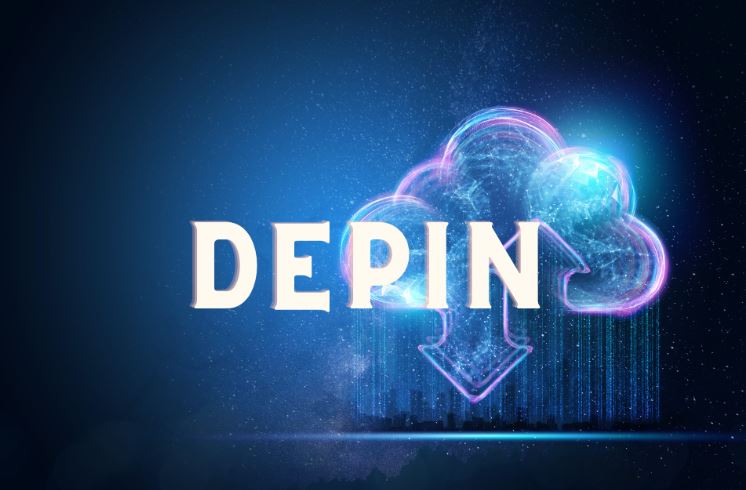Introduction of Crypto
A cryptocurrency is a digital currency that was generated utilizing encryption methods. Cryptocurrencies act as both a currency and a virtual accounting system due to the usage of encryption technology. To utilize cryptocurrencies, you will need a cryptocurrency wallet. These wallets might be software that is cloud-based or installed on your PC or mobile device. Wallets are the tools you use to store your encryption keys, which prove your identity and connect you to your cryptocurrency.
Top 10 Cryptos in 2024 To 2025
| Crypto Cions | Market Capitalization |
| Maker (MKR) | $2,897,809,043 |
| Cosmos (ATOM) | $4.84 Billion |
| Polkadot (DOT) | $13,800,861,416 |
| Tron (TRX) | $10.61 Billion |
| Dogecoin (DOGE) | $27.136 Billion |
| Ripple (XRP) | $34,672,212,504 |
| Solana (SOL) | $84,064,180,622 |
| Binance Coin (BNB) | $86,586,097,607 |
| Ethereum (ETH) | $405.87 Billion |
| Bitcoin (BTC) | $1,381,809,889,134 |
Note: This list was created based on internal research and should not be interpreted as investment advice. Investors should conduct extensive research before purchasing or selling cryptocurrency assets.
Top 10 Cryptos Introduce and advantage and Disadvantages
Polkadot (DOT)
Polkadot is a Layer-0 protocol that connects and secures many blockchains, allowing them to be interoperable. This permits the transfer of any digital asset, including tokens and smart contracts. Bitcoin is the top 10 Cryptos.
This protocol connects private and public blockchains, Oracle services, and other networks. It allows for information sharing across a wide range of networks and protocols.
Advantages of Polkadot
- The Polkadot protocol’s most compelling feature is its interoperability. It enables many blockchains to access data and assets from one another.
- Polkadot is one of the most popular platforms for developers to create.
-
Layer 0 applications such as Polkadot and Kusama built on Substrate can generate a network of networks known as para-chains, which can borrow security techniques from that layer and apply them to any layer 1 or layer 2 para-projects.
Disadvantages of Polkadot
- Polkadot has some downsides when compared to other cryptocurrencies. To begin, the platform is still in its early stages and is quite sophisticated. Developers may face a high learning curve when attempting to leverage the Polkadot ecosystem.
- Polkadot has stiff competition in this arena, with Cardano and Cosmos vying for a larger market share.
- Slots for independent blockchains are offered at auction, making them difficult to obtain without significant money.
Dogecoin (DOGE)
Dogecoin is one of the most popular tokens with investors. It began as a Bitcoin joke and quickly became an internet sensation with a dedicated and active community. Its distinctive feature is that it is based on the popular “Doge” meme.
Several crypto-community luminaries and celebrities, including Elon Musk and Vitalik Buterin, have praised the idea. It is vital to highlight that Dogecoin is a meme coin with no fundamental value other than a strong community. Investors should undertake extensive due diligence before investing in Memecoins.
Advantages of Dogecoin
- A Memecoin’s unique value proposition has helped it maintain its market dominance.
- An active community dedicated to the token’s success.
- In comparison to Bitcoin, Ethereum, and many other big cryptocurrency players, Dogecoin transactions often have cheaper charges. As a result, the “dog” currency is a viable option for ordinary business and leisure activities, as well as microtransactions.
Disadvantages of Dogecoin
- No actual use; value is solely dependent on a meme.
- There is no limit on the overall quantity of DOGE, which causes inflation in the token.
- There is no assurance that Dogecoin’s value will continue to climb, thus there is a chance that you may lose money.
Ripple (XRP)
Ripple XRP focuses on developing payment solutions for banks and financial organizations. It addresses several issues with rival international settlement systems such as SWIFT. XRP allows transfers to be executed in seconds rather than hours or days.
Ripple has made traditional finance considerably more accessible to users through the effective usage of blockchain technology. Ripple is the Top 10 Cryptos.
Advantages of Ripple
- Lower the hurdles to banking and international settlement, hence increasing access.
- Much faster than competitors such as SWIFT.
Disadvantages of Ripple
- Ripple Labs is now involved in a legal battle with the US Securities and Exchange Commission.
- The network is extremely centralized, with all transactions validated by a federated group of financial institutions.
Solana (SOL)
Solana is a decentralized blockchain network designed for scalability first and foremost. It is one of the fastest blockchains on the market, with transaction rates approaching 65,000 per second. It accomplishes this using the unique Proof of History consensus technique, which allows nodes to synchronize time across the network.
Solana is commonly regarded as an “Ethereum-killer” and one of the DeFi space’s fastest-growing projects.
Advantages of Solana
- Solana is one of the fastest blockchains on the market, which makes it quite popular among investors.
- The site also charges extremely minimal transaction fees, with an average of $0.00025.
- Solana can handle a large number of transactions per second, which is useful for applications that require real-time processing.
- Solana has minimal latency, which ensures transactions are completed rapidly. This is required for dApps with real-time updates, such as games and prediction markets.
Disadvantages of Solana
- Solana has only one disadvantage: it is a very new blockchain platform, therefore there are fewer developer tools and resources than more established platforms such as Ethereum. In addition, Solana’s PoST consensus method has yet to be proven on a broad scale, and its long-term success is unknown.
- Solana is not easily compatible with Ethereum, therefore its smart contracts are limited to those developed for the network.
- Solana has experienced multiple network disruptions, rendering it unreliable for its consumers.
Binance Coin (BNB)
Since its 2017 launch, BNB has developed from a basic token to the engine of its own ecosystem.
Initially, BNB was used to give specific incentives to Binance cryptocurrency exchange users, such as decreased costs, exclusive access to initial coin offerings, and rebates.
Today, it serves as the backbone of the BNB Chain ecosystem, which competes with Ethereum’s dominance by offering fast speed and cheap cost. It has established itself as a viable option in the market.
Advantages of Binance Coin
- One of the most notable advantages of BNB is its fast transaction times and minimal transaction fees.
- BNB, on the other hand, was developed on the Binance Smart Chain, a high-performance blockchain optimized for quick and inexpensive transactions.
- Binance has also made substantial progress in the creation of the Binance Smart Chain, which is expected to become an alternative to the Ethereum network.
- Its low costs and fast throughput allow it to meet far higher demand than many competitors.
Disadvantages of Binance Coin
- Binance Coin (BNB) cannot be mined due to the Binance blockchain’s Byzantine Fault Tolerance (BFT) consensus process.
- BNB’s value is primarily based on the Binance exchange’s performance and reputation. Any negative developments involving Binance may have an impact on the coin’s price.
- BNB’s value, like that of many other cryptocurrencies, is very volatile, resulting in substantial price changes.
- The changing regulatory landscape for cryptocurrencies may provide difficulties to Binance Coin’s future growth and adoption.
Ethereum (ETH)
After Bitcoin, Ethereum has emerged as one of the most powerful forces in the cryptocurrency sector. It was the first to incorporate smart contract capability, allowing developers to construct and automate some critical functions that we now take for granted. Ethereum is also designed to serve as a platform for decentralized apps and finance, making it the top blockchain in this space.
Advantages of Ethereum
- Ethereum allows you to create and deploy smart contracts and decentralized apps (dApps) with no downtime, fraud, control, or intervention from a third party.
- Ethereum’s Proof of Stake consensus method has made the blockchain extremely efficient. The next enhancements will focus on raising TPS and upgrading the current robust security mechanisms.
Disadvantages of Ethereum
- Ethereum occasionally experiences high network load, which can slow transactions to a crawl. It must rely on scaling methods to deal with the traffic on its network.
- Ethereum’s transaction fees can potentially soar. In rare situations, the fees can exceed the value of the transaction.
Bitcoin (BTC)
Bitcoin, the oldest and most prominent crypto asset on the market, was the catalyst for the entire cryptocurrency boom. Since its humble beginnings in 2009, it has risen to unthinkable heights, capturing the attention of investors, the media, and corporations.
Must Read: Chipotle Mexican Grill Stock Price Forecast 2024, 2025, 2026, 2027, 2030, 2040
The network serves as an alternate payment method to cash and is protected by Proof of Work consensus. All transactions are recorded on a blockchain, and miners receive rewards for each block of transactions they confirm.
Advantages of Bitcoin
- Bitcoin does not require permission from anyone. It is free and available for use globally. There are no borders or limitations with Bitcoin.
- Relatively steady in comparison to some newer crypto coins.
- The original Bitcoin whitepaper describes it as a digital peer-to-peer currency with instant transactions. Unlike payment networks such as PayPal and Visa, Bitcoins have extremely cheap transaction fees.
- Bitcoins have appreciated due to their limited availability since their inception and increased usage. Unlike traditional money, Bitcoin’s value swings with each transaction.
Disadvantages of Bitcoin
- BTC relies on proof of work, which uses a lot of electricity and takes a long time to complete transactions.
- BTC, as a measure of the overall crypto market, rarely deviates from general market trends and conditions.
- Cryptocurrencies are volatile because of variables such as limited supply, increasing market demand, investor attitude, and so on. Because of its scarcity and rising demand, its price is highly volatile.
Frequently Asked Questions
How much is 1 BNB on Binance?
Currently, BNB is priced at $589.36 per BNB, with a circulating supply of 149.54M BNB, resulting in a total market capitalization of $88.13B.
Which coin will reach $1 in 2024?
According to our Analysis, Dogecoin is the most likely meme coin to reach $1 first. DOGE has the largest market capitalization, the most active community, and the most positive price momentum
Will crypto be big in 2025?
Veteran analyst and CEO of Factor LLC, Peter Brandt, foresees Bitcoin rallying as high as $200,000 by September 2025.



